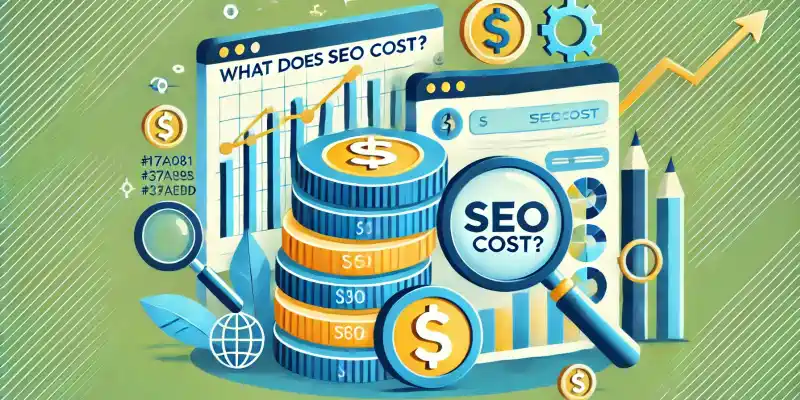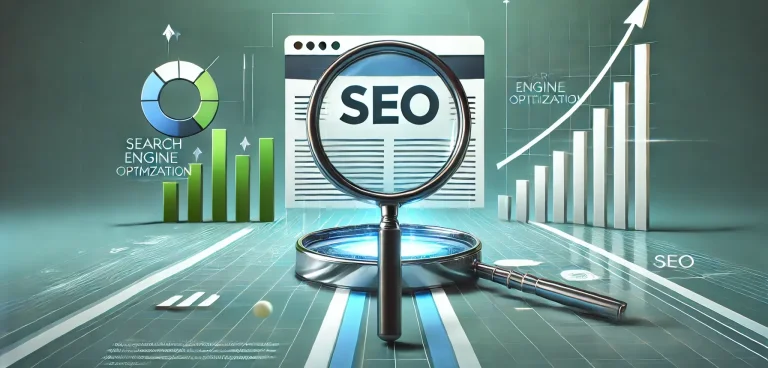Introduction to Search Engine Optimization (SEO)
We dive into search engine optimization (SEO) and, in this article, explore what SEO is, why it’s important, and how much it costs. We’ll also cover some basic concepts.
This article, which discusses what SEO is, is the 1st part of our comprehensive SEO guide, covering all aspects of SEO through multiple articles.
What is SEO / Search Engine Optimization?
Search engine optimization, also known as SEO, is the process of improving a website’s visibility on search engines like Google.
It involves optimizing content, technical aspects, and links to make it easier for search engines to understand, index, and display your site in search results.
The goal of SEO is to attract organic traffic, meaning visits without paying for ads—such as achieving a high ranking on Google.
Search Engine Optimization (SEO) vs. Search Engine Advertising (SEA) vs. Search Engine Marketing (SEM)
Although SEO, SEM, and SEA all aim to increase visibility on search engines, they differ in their methods and focus areas. To understand how to best utilize these strategies, it’s essential to know their differences and how each can contribute to your overall online marketing efforts.
Search Engine Optimization (SEO) focuses on improving your website’s visibility in the organic (non-paid) search results.
This is achieved through a range of techniques that optimize both the content and technical aspects of your website. SEO encompasses everything you’ll read about in this article.
The goal of SEO is to rank high in search results so users can easily find your website when searching for the products or services you offer.
SEO is a long-term strategy, where results build up over time but can provide sustained organic traffic without ongoing costs per click.
This blog post focuses specifically on this part—SEO.
Search Engine Advertising (SEA) refers specifically to paid search advertising, where you pay to have your site displayed in search results.
This is typically done through pay-per-click (PPC) ads, such as Google Ads, where you bid on specific keywords and pay each time a user clicks on your ad.
SEA allows you to quickly gain visibility on search engines like Google, even if your site doesn’t yet rank high organically.
The advantage of SEA is that you can target your ads very precisely to your audience based on keywords, demographics, geography, and other factors. While SEA can be expensive, especially in competitive industries, it provides a direct and measurable way to attract traffic and can be an effective method for driving quick results while building up your organic SEO.
Search Engine Marketing (SEM) is a broader strategy that includes both SEO and paid advertising (SEA) to maximize visibility in search results.
SEM combines organic visibility through SEO with paid ads, allowing you to cover more areas on the search results page. While SEO works to improve your organic rankings, paid ads ensure that your site appears at the top of search results when users search for specific keywords.
SEM therefore allows you to attract both free organic traffic and pay for additional exposure, which can be particularly useful in highly competitive markets or during special campaigns.
On-Page and Off-Page SEO
On-page SEO refers to the optimization activities you perform directly on your website, such as using keywords, optimizing titles, meta descriptions, and improving the structure of your content.
Off-page SEO includes activities outside your website that affect your ranking on search engines, such as link building and social signals.
Both aspects are covered in detail in this comprehensive guide, and in the other articles in this series, you’ll also see how they are integrated into practice.
Why is Search Engine Optimization Important?
Search engine optimization is crucial for achieving online visibility.
The better your site is optimized, the higher it will rank on search engine results pages (SERPs).
This means more visitors, potentially more customers, and ultimately increased revenue.
Additionally, good SEO builds your business’s credibility and authority online, contributing to increased brand value.
In this series of articles on search optimization for 2024, we cover all the essential aspects of SEO.
How Much Does SEO Cost?
The cost of search engine optimization varies depending on whether you choose to do it yourself or hire a professional.
DIY solutions require time and knowledge, while a professional SEO consultant can often be hired on an hourly basis, or you can opt for a monthly subscription depending on the scope of the task and the competition in your industry.
At Flex4Business ApS, the Flex4B system helps you handle much of the work on your own, enabling many customers to manage their own search engine optimization. However, we also have experts available to assist if you want to prioritize this further.

SEO Guide - All Articles
Next Article: Keyword Analysis and Understanding Search Behavior
